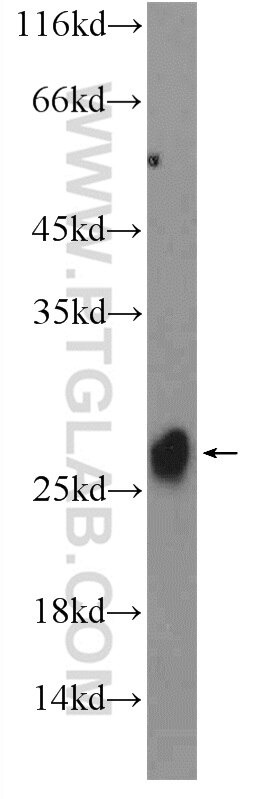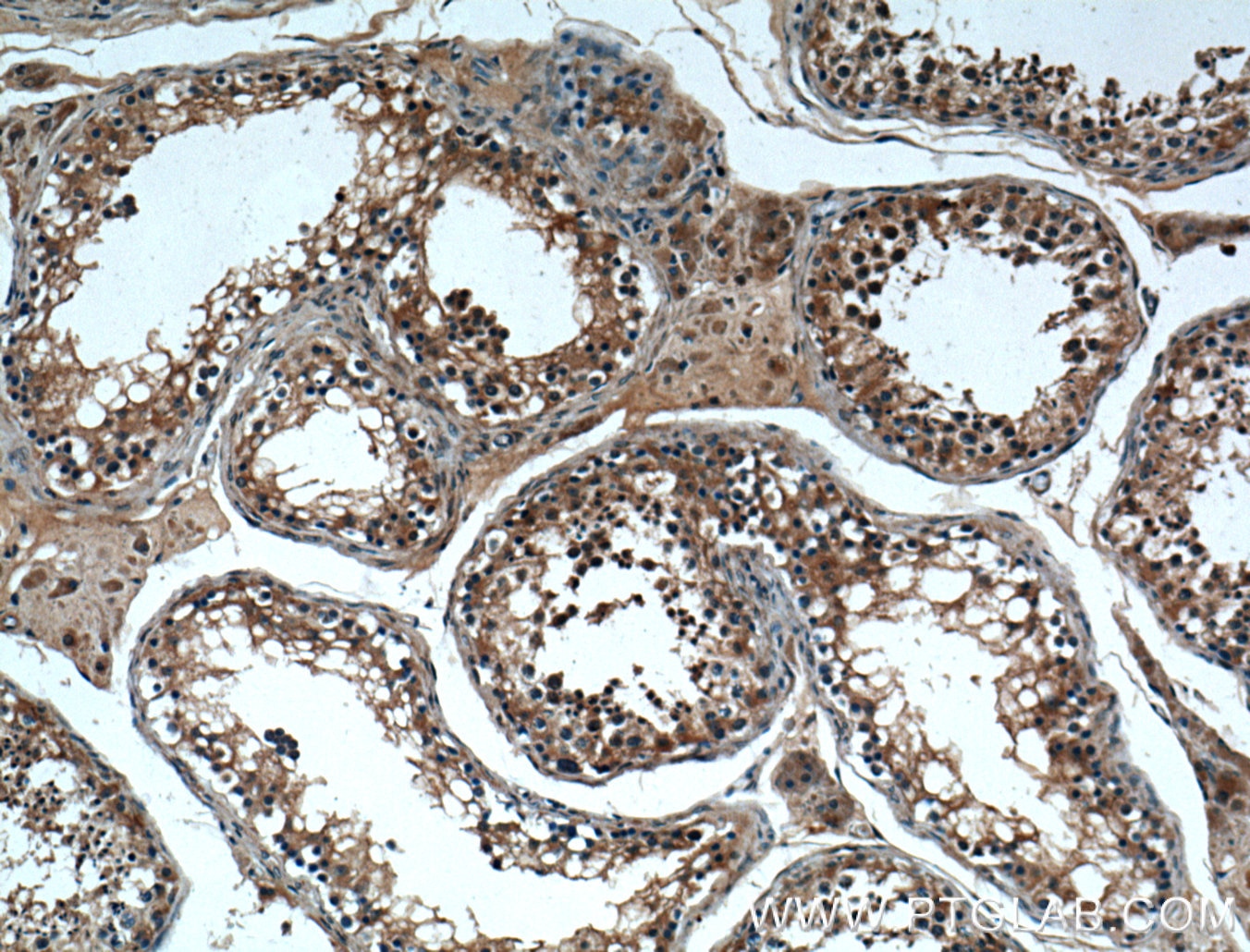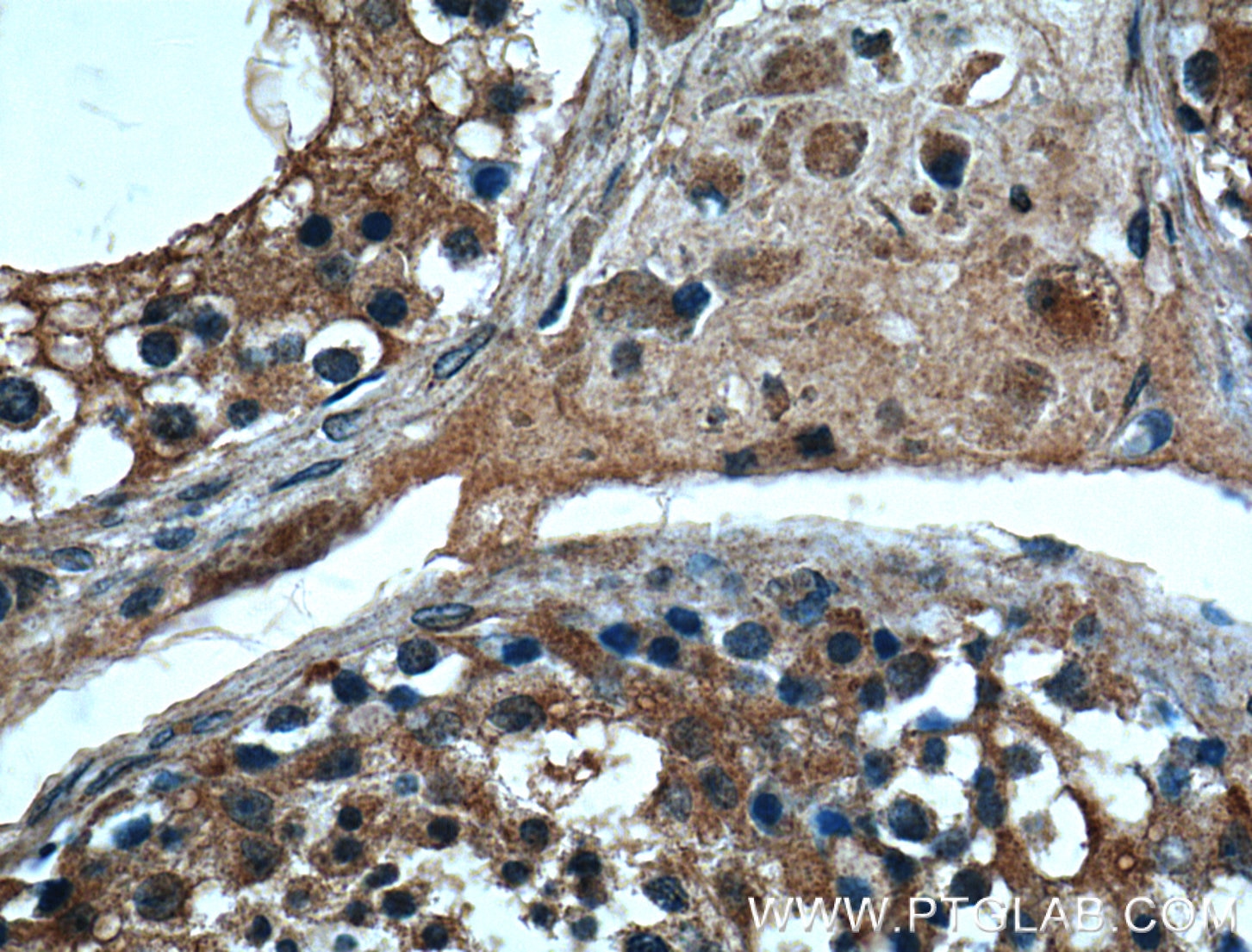Tested Applications
| Positive WB detected in | mouse testis tissue |
| Positive IHC detected in | human testis tissue Note: suggested antigen retrieval with TE buffer pH 9.0; (*) Alternatively, antigen retrieval may be performed with citrate buffer pH 6.0 |
Recommended dilution
| Application | Dilution |
|---|---|
| Western Blot (WB) | WB : 1:500-1:1000 |
| Immunohistochemistry (IHC) | IHC : 1:100-1:400 |
| It is recommended that this reagent should be titrated in each testing system to obtain optimal results. | |
| Sample-dependent, Check data in validation data gallery. | |
Published Applications
| WB | See 6 publications below |
Product Information
14251-1-AP targets MSRB3 in WB, IHC, ELISA applications and shows reactivity with human, mouse, rat samples.
| Tested Reactivity | human, mouse, rat |
| Cited Reactivity | mouse, rat |
| Host / Isotype | Rabbit / IgG |
| Class | Polyclonal |
| Type | Antibody |
| Immunogen |
CatNo: Ag5524 Product name: Recombinant human MSRB3 protein Source: e coli.-derived, PGEX-4T Tag: GST Domain: 1-185 aa of BC040053 Sequence: MSAFNLLHLVTKSQPVALRACGLPSGSCRDKKNCKVVFSQQELRKRLTPLQYHVTQEKGTESAFEGEYTHHKDPGIYKCVVCGTPLFKSETKFDSGSGWPSFHDVINSEAITFTDDFSYGMHRVETSCSQCGAHLGHIFDDGPRPTGKRYCINSAALSFTPADSSGTAEGGSGVASPAQADKAEL Predict reactive species |
| Full Name | methionine sulfoxide reductase B3 |
| Calculated Molecular Weight | 21 kDa |
| Observed Molecular Weight | 26 kDa |
| GenBank Accession Number | BC040053 |
| Gene Symbol | MSRB3 |
| Gene ID (NCBI) | 253827 |
| RRID | AB_2878035 |
| Conjugate | Unconjugated |
| Form | Liquid |
| Purification Method | Antigen affinity purification |
| UNIPROT ID | Q8IXL7 |
| Storage Buffer | PBS with 0.02% sodium azide and 50% glycerol, pH 7.3. |
| Storage Conditions | Store at -20°C. Stable for one year after shipment. Aliquoting is unnecessary for -20oC storage. 20ul sizes contain 0.1% BSA. |
Protocols
| Product Specific Protocols | |
|---|---|
| IHC protocol for MSRB3 antibody 14251-1-AP | Download protocol |
| WB protocol for MSRB3 antibody 14251-1-AP | Download protocol |
| Standard Protocols | |
|---|---|
| Click here to view our Standard Protocols |
Publications
| Species | Application | Title |
|---|---|---|
Hum Genet Compound heterozygous mutation of the ASXL3 gene causes autosomal recessive congenital heart disease. | ||
Free Radic Biol Med Loss of methionine sulfoxide reductases increases resistance to oxidative stress. | ||
J Med Food Rice Protein Exerts Endogenous Antioxidant Capacity via Methionine Sulfoxide Reductase and the Nrf2 Antioxidant System Independent of Age. | ||
Food Sci Biotechnol Methionine strengthens anti-inflammation of rice protein via depressing NF-κB activation and stimulating Msr expression in rats fed cholesterol-enriched diets. | ||
J Food Biochem Rice protein stimulates endogenous antioxidant response attributed to methionine availability in growing rats. | ||
J Sci Food Agric l-Methionine activates Nrf2-ARE pathway to induce endogenous antioxidant activity for depressing ROS-derived oxidative stress in growing rats. |








